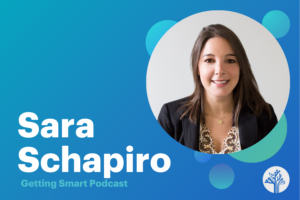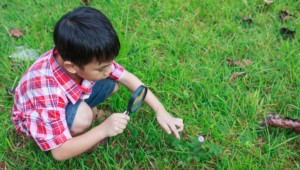Who is THE Expert: Parents or Teachers? Both?

Arina Bokas
One of the biggest objections from educators on partnering with parents around student learning boils down to their belief that parents don’t trust them as trained experts who know what’s best for their children. This of course puts involved parents in a very peculiar spot. Shouldn’t educators trust parents as experts when it comes to their children as well? Does speaking up at schools make them advocates or adversaries?
Flashback to the 1920’s
In March of 1928, Child Study magazine published an article by Carleton Washburne, Superintendent of Schools in Winnetka, Illinois. Washburne was known for his progressive educational innovation the Winnetka Plan. In his piece entitled “The Public School and the Parent,” Washburne shared something that pointed at the very core of a school/family tug-of-war for control in education.
“Principals and teachers could be aloof, holding parents at arm’s length. Parents, on the other hand, could be opinionated, insisting that educators implement their recommendations. Those who joined home and school associations could be dismissed as politicians or social climbers. […] Educators had to shed such biased expectations […] Schools needed both the confidence and the criticism of parents, and neither could be had unless the professionals respected the parents’ right to make requests and express opinions.” ( p.52)
Unfortunately, educators at that time were one of the most educated workforces in America. They didn’t see how the opinions of lesser educated parents, especially in immigrant communities, could provide much of a contribution to their children’s education. The only option these parents had in their struggle to retain some control over their children’s schooling was to search for the right school for their child. The president of the Progressive Education Association Stanwood Cobb urged parents to take more responsibility for the quality of their children’s schools:
“The modern mother is distinctly interested in the education of her child, and is not willing to delegate this important matter to others. She must acquaint herself with the newest methods in education; she must study her child’s school, analyzing it for its strengths and weaknesses. She must become qualified to choose the right school for her child.” (p.57)
100 Years Later
The Post-Digital Era, a technological revolution that drastically changes the fundamentals of our lives, work, personal and professional relationships also shapes education and learning. According to Getting Smart CEO Tom Vander Ark’s projection based on research, emerging trends and developments in technology and education, parents in 20 years will become managers of their learners’ profiles. These profiles will be shared partially or entirely with numerous learning providers, of which schools will be one of many. This means that parents will be making decisions regarding their children’s education with guidance and assistance from schools.
Parents are much better educated now than a hundred years ago–in many cases, they have college degrees comparable or more advanced to those of their children’s teachers. Yet the mindset of superiority in knowing what is best for each child’s development and learning and how to assess this learning still seems very prevalent in America’s schools.
On February 5 of 2016, just a week after losing her 6-year-old son to a flu, 2014-2015 Michigan Teacher of the Year Melody Arabo wrote an open letter sharing a troubling story about the treatment of her 6-year-old twins by the school district where she taught.
Her boys were transferred from their home school into a segregated, self-contained classroom for the cognitively impaired at a different elementary school, despite evidence showing they were developing successfully in their general education classrooms.
Their biggest challenge was speech apraxia, which prevented them from communicating at their age level. Since the district used assessments requiring students to use typical language, they labeled the boys as cognitively impaired. The Arabo family asked district administrators to check with teachers and support staff regarding the twins’ ability to grow as learners in the general education setting, but surprisingly administrators ignored this request.
“We’ve followed the chain of command that was recommended and have exhausted every avenue that we could think of in order to resolve these issues in a private and amicable manner. Our concerns have been chalked up to a difference in philosophical beliefs and making a fuss because we weren’t getting what we want. But this is about so much more than just getting our way. It is about poor treatment of families who are already struggling with their children’s challenges […] I share this story because I know that there are so many others, across the state and nation, that have felt voiceless and powerless in their attempts to advocate for their children with disabilities.”
Who is the Expert?
Arabo’s perception of the problem between parents and schools, regardless of whether a student has learning disabilities or not, is nearly identical to that expressed by some progressive educators in the 1920s. Many schools are still unable to form partnerships with parents because they don’t believe that parents know what is best for their children, and so create systems protecting them from parental opinions and requests. Yet if constantly met with defense, parents also might not want to trust the expertise of educators. Once again, their only real option is to choose the right school or teacher for their child.
There is a difference between being an expert and always being right. Expertise of any kind does not appear on its own and is not absolute. It is a result of trials, errors and learning from mistakes and is relative to each individual child. While schools might claim expertise in education, parents know what works for their child.
Joining Forces
Parents need to become more intentional in providing feedback, whereas teachers need to become more open to seeing parents as colleagues in educating their children. It is a two-way process. Curriculum Nights are a good time to establish this shared understanding.
Teachers have to make it clear to parents that they expect (not just welcome) their feedback regarding how the learning process, instructional practices and assessments impact their child. Since parents are often not used to providing such input, teachers can break the ice by asking parents to write down what they do when something is amiss in their child’s learning. They can then ask them to make a commitment to provide this feedback.
It is also necessary to regularly solicit parental feedback throughout the school year at certain checkpoints, or at least monthly. It usually works better if this feedback is about something specific–a certain practice, routine or experience such as the appropriate amount and usefulness of homework. A simple email invitation to share what works for the child and what doesn’t can open a door to a productive dialogue between parents and educators.
New technology opens many ways to facilitate connections and information flow between schools and families. K-12 teachers are increasingly choosing online and mobile applications to communicate with digitally savvy parents. For example, Class Messenger is a digital communication tool that allows direct, two-way messaging so both parties can discuss a student’s potential, progress, strengths and struggles.
Edmodo is another application that teachers can use to track student’s progress, access their knowledge, export classroom data and provide students and parents with progress feedback. This includes charts showing which goals students have surpassed, which they have met, and which they are working to meet. Parents can ask questions, state concerns and interact with teachers.
The main difference between the 1920s and the approaching 2020s is that most schools back then could function rather well without any input from parents. In 2020, this can no longer be the case. Only by combining their unique vantage points can schools and families establish the true expertise in educating every child.
For more check out:
- Helpers or Co-Creators? Core Dispositions in Family-School Partnerships
- Smart Parents: Parenting for Powerful Learning
- 5 Keys to Forging Strong Parent Engagement
Arina Bokas is the Bailey Lake PTA Vice President and the host of the Future of Learning television series on Independence TV. Follower Arina on Twitter, @arinabokas.
Stay in-the-know with all things EdTech and innovations in learning by signing up to receive the weekly Smart Update







0 Comments
Leave a Comment
Your email address will not be published. All fields are required.